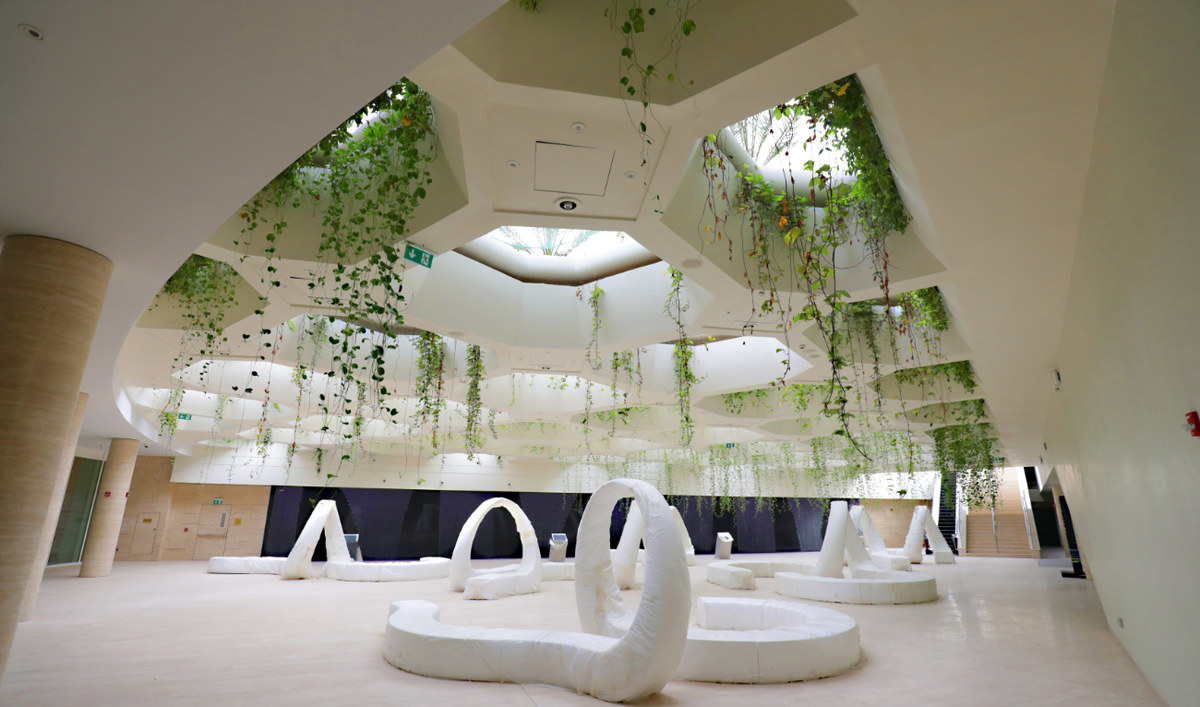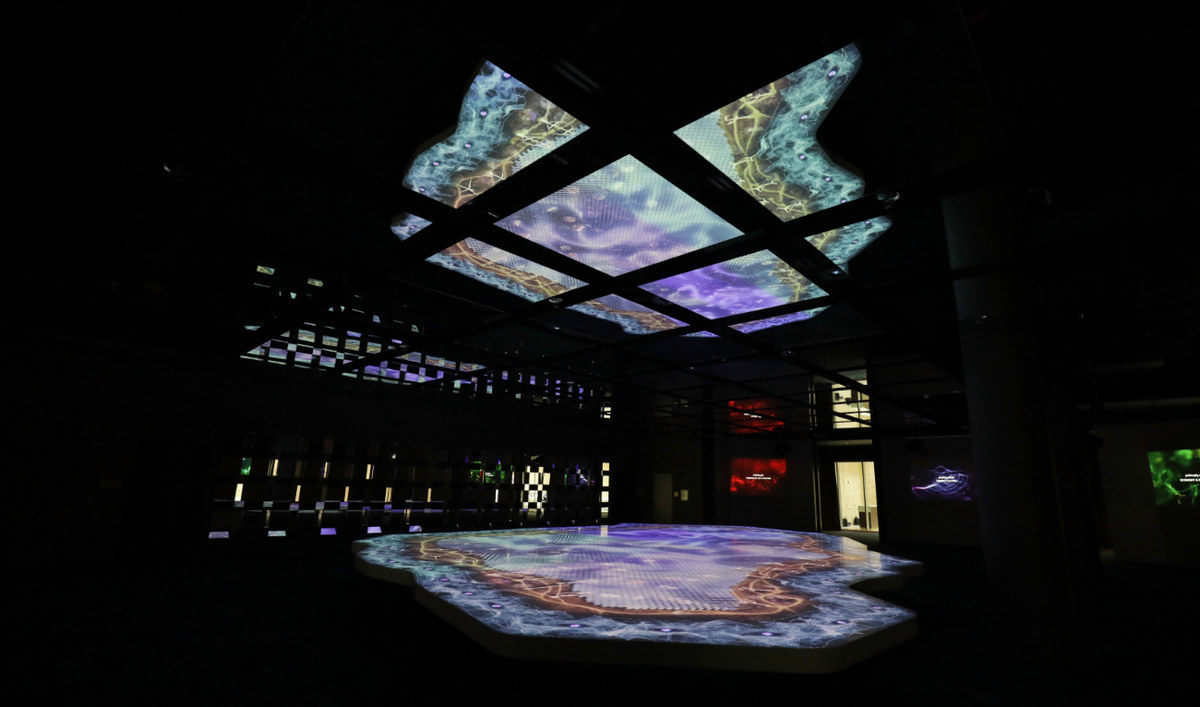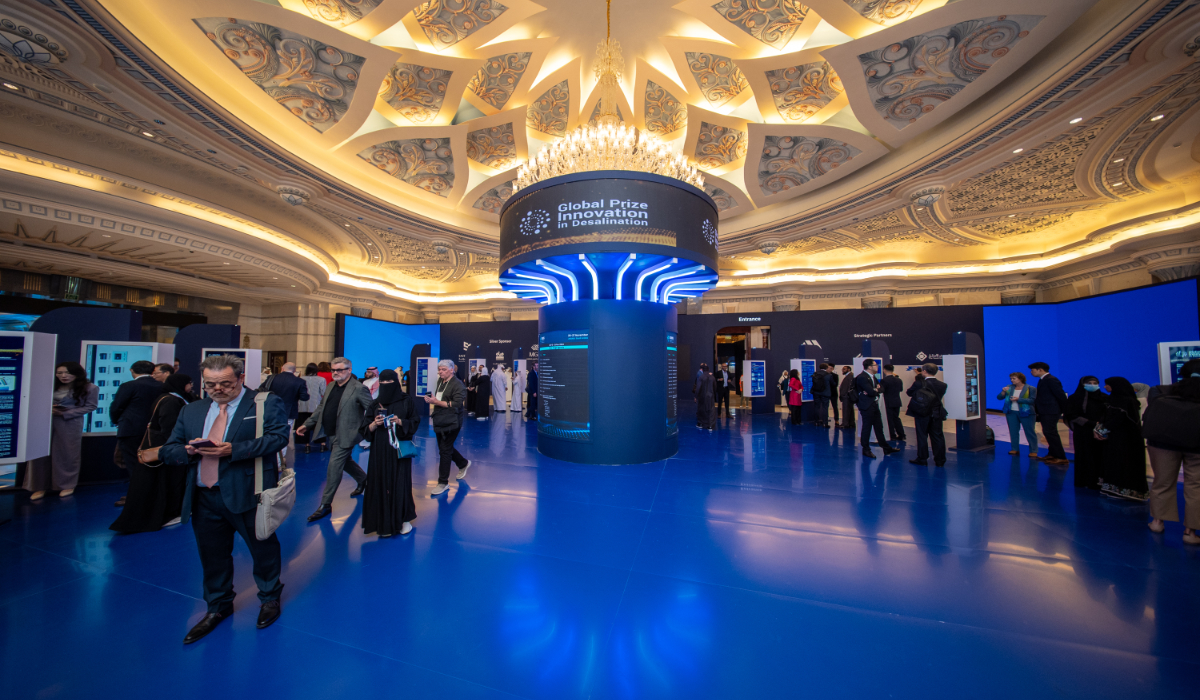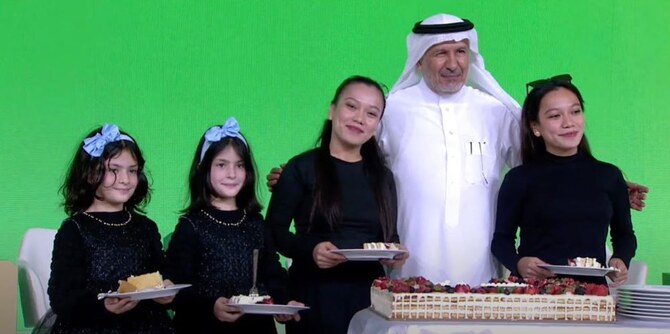JEDDAH: The finishing touches are being made to Saudi Arabia’s pavilion at Expo 2020 Dubai for a one-of-a-kind experience that will present the Kingdom to visitors in a new light.
The global exhibition will open in October and run until March 2022. For the first time every participating country will have its own pavilion. The Saudi Pavilion will invite audiences to explore the Kingdom, learning about its past, its present and its ambitious vision for the future.
The second-largest structure at the Expo, the six-story building features 650 solar panels manufactured in the Kingdom.
Its advanced technologies have won the pavilion three Guinness World Records awards, including the most extensive interactive light floor, the longest interactive water curtain, and the largest interactive digital mirror with an area of more than 1,240 square meters.
FASTFACT
The pavilion provides a simulation of 14 Saudi cultural sites over an area of 580 square meters.
A large screen welcoming guests displays images and videos of life in the Kingdom, with interactive side screens. A 32-meter interactive digital water curtain in the Pavilion’s front garden allows visitors to choose the decorations they want based on the identity and nature of the Saudi regions.
On their first stop, visitors take a nature walk. A large curved 68 square meter LED screen will portray the Kingdom’s diverse environment, including Wadi Al-Bardani, Farasan Island, the Empty Quarter, the Red Sea and Tabuk Mountains.
The pavilion provides a simulation of 14 Saudi cultural sites over an area of 580 square meters. Moving from one place to the next via an escalator, visitors will see UNESCO registered sites that include Al-Turaif District, Al-Hijr, downtown historical Jeddah, rock art in the Hail region and Al-Ahsa Oasis. It also features other heritage sites such as the Masmak Fortress in Riyadh, the columns of Rajajil, Omar bin Khattab Mosque in Jouf, Al-Shanana Tower in Al-Qassim, Ibrahim Palace and Al-Qaisariah souq in Al-Hofuf, Al-Aan Palace, the Emirate Palace in Najran, and Rijal Alma in Asir.
Through an electronic window topped with 2030 scenographic crystals symbolizing Saudi Vision 2030, the Pavilion displays the Kingdom’s four giga-projects that are under construction: Qiddiya, the Red Sea Development Company, NEOM and Roshn, as well as other vibrant environmentally friendly development projects such as the King Salman Park project, and the Green Saudi Arabia and Green Middle East projects.
The Saudi Pavilion has a giant hall 30m in diameter that will house an art exhibition entitled “Vision.” Its interactive floor takes visitors on a visual and audio journey around the essence of Saudi culture and is designed by Saudi artists.
The Pavilion includes the Exploration center, a platform for building investment opportunities and partnerships. It also has an interactive digital table in the form of a map of Saudi Arabia and includes data on all aspects of life in the Kingdom. The table has been classified into different categories: Art and culture, economy and investment, energy, nature and tourism, people and homeland and transformation.
The pavilion seeks, through this diverse content, to provide an enjoyable creative journey for visitors that presents the reality of the Kingdom in the light of Saudi Vision 2030, demonstrating pride in identity, history, heritage, development and the steps towards a prosperous future.




























